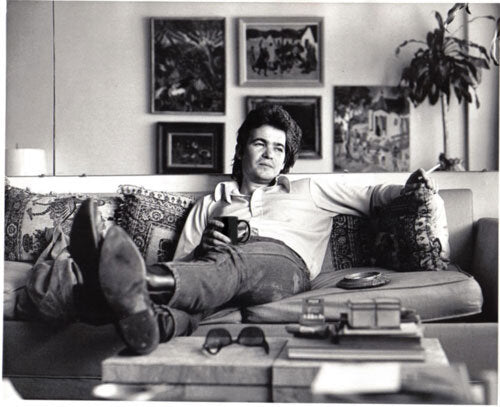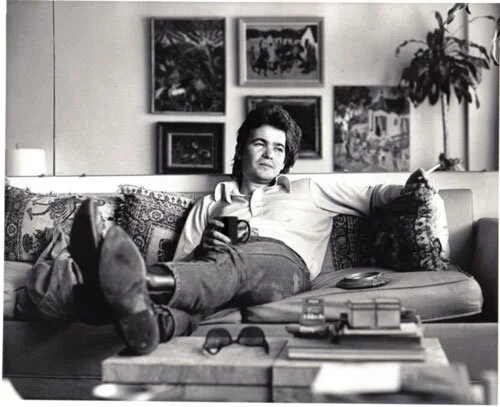
The History of Coffee Shops

Coffee… where would we be without it?
It may be hard to imagine, but there was a time when coffee was barely with us - let alone our favorite spot to sit and sip it. This got us thinking...how did they come about? And when? And why?
Here we’ll explore the origins of coffee houses and their evolution up through today.
1400’s - 1600’s: New Beginnings Percolate
Although the origins are murky, and coffee was around for a bit longer, records of the first coffee shop indicate it started around 1475 in Istanbul (previously Constantinople - cue They Might Be Giants).
Far from the fancy stuff we drink today, this was simple - unflavored, black and very strong. The wildly popular drink was even feared for a time by imams, who issued a decree banning coffee houses for about twelve years. The issue, apparently, was that coffee houses were becoming a hotbed for political thought - thought that some saw as a threat to the current rule.
The ban was eventually lifted and coffee gained such cultural acceptance that it was apparently legal for a woman to divorce her husband on the grounds of not providing her with coffee!
By the mid 1600’s, England had opened up its trade route. Queen Elizabeth I opened up her country diplomatically to the Turkish and Ottoman empire.
Aside from being a savvy political move, this brought in some new perks… like tea and chocolate. And, of course, coffee. Soon after, coffee shops started popping up around England.
One of the first was called “The Turk’s Head”, founded by Pasqua Rosee. The shop still stands today and, in fact, still serves coffee (although called “The Jamaica Wine House” and obviously under different management”)!
The first official coffee house - by some accounts, anyway - was called “The Angel” and founded in Oxford. “The Turk’s Head”, however, had smarter marketing - they distributed flyers introducing the English populace to this strange new drink, and colorfully describing its benefits.
In an ironic twist, the founder’s house is now a Starbucks.
1700’s -1800’s: Grounds for Free Thought And Revolution
So what were coffee houses like back then?
Turns out, they were pretty similar to what we know of today - at least to a point. Think of them like a tavern, but for business - lots and lots of business was conducted over a hot cup of joe at coffee houses (minus the free wifi)
In fact, Lloyd’s of London, a famous British insurance company, essentially started out of a coffee house. Jonathan’s Coffee House - run by proprietor John Castaing - was deeply involved in trading stocks and is the earliest recorded establishment that bought and sold securities in London.
Many coffee houses were special salons - not in the get-your-hair-did, get-your-nails-did sense, but in the older meaning of the word. They were a meeting of minds - hot topics of the day were discussed, and sometimes revolutions were fomented.
The famous Cafe de Procope was one such place - a haven for intellectuals, authors, and other artists of the day. All the people most despondent over the state of things could rub elbows with the likes of Robispierre, Marat, and even Napoleon.
It is said that in his early days, the future Emperor would play chess in the corner all day - sipping on coffee. He even once forgot his money at home and had to leave his hat as collateral for his bill.
This coffee house (as well as others that cropped up across the country) was a hotbeds of political intrigue, spies, and revolutionary plots - just a bit more interesting than your average Dunkin’ Donuts.
Coffee has its place in American history too.
Have you ever wondered how America - a former British colony - came to prefer coffee? As you might expect, it’s rooted in politics.
Shortly after the Boston Tea Party - where American revolutionaries chucked a fortune in tea into Boston Harbor - Americans almost completely switched to coffee.
While England couldn’t conceive of American’s going without tea, America - in part out of patriotism, and in part to thumb its nose at the monarchy - stubbornly decided it liked coffee way better.
Similar to their French counterparts, American coffee houses became fertile ground for political planning and discussion - the Continental Congress even met in one regularly.
1900’s - Today: Innovations Fueled by Caffeine
Interest in coffee - as well as innovations - boomed into the early twentieth century. Self serving espresso machines were invented in 1901 by Italian inventor Luigi Bezerra, who noted how much more productive workers were after coffee. Other innovations - including decaf, instant coffee, and the first drip coffee maker would all be well in the public eye by the first decade of the new century. Coffee imports spiked during prohibition, and demand just kept growing.
Even hundreds of years later, coffee shops were still inspiring new generations to challenge cultural norms. The Beat generation of poets in the 50’s were well known to congregate in in various corners where coffee was poured. In fact, it is said that Caffee Reggio in New York was a favorite spot of Ginsberg and Kerouac - and one of the first places in America to serve cappuccinos.
Just like McDonald’s did for the burger, though, coffee went corporate toward the later end of the twentieth century.
Places like Starbucks began to pop up every block (sometimes twice in the same block). On the upside, there are now coffee shops (usually several) a stones throw from anywhere in America - further cementing the place of coffee shops into our lives.
Still, things are changing again. More and more we are seeing a drive toward more homegrown, independent coffee shops. Discerning customers seek the small batch, artisan style coffee that stands in stark contrast to the bland, mass produced beverages chains often produce.
Regardless of all these changes, the role of coffee shops has remained surprisingly consistent.
More than a place to grab your favorite drink, it’s somewhere to sit and relax. Or work on your laptop. Or catch up with the latest political news on your phone. Or delve into deep philosophical discussions with friends and colleagues.
Or maybe start the next big revolution.
Share




